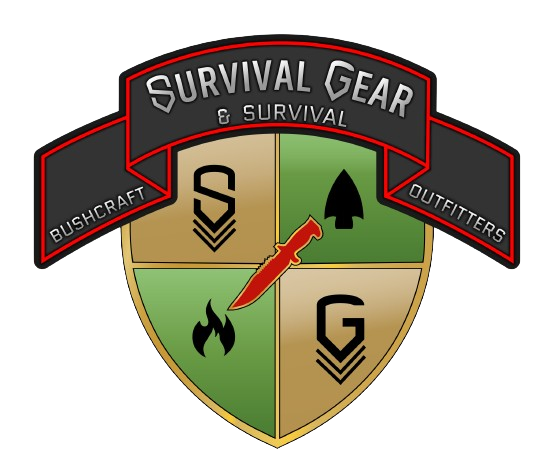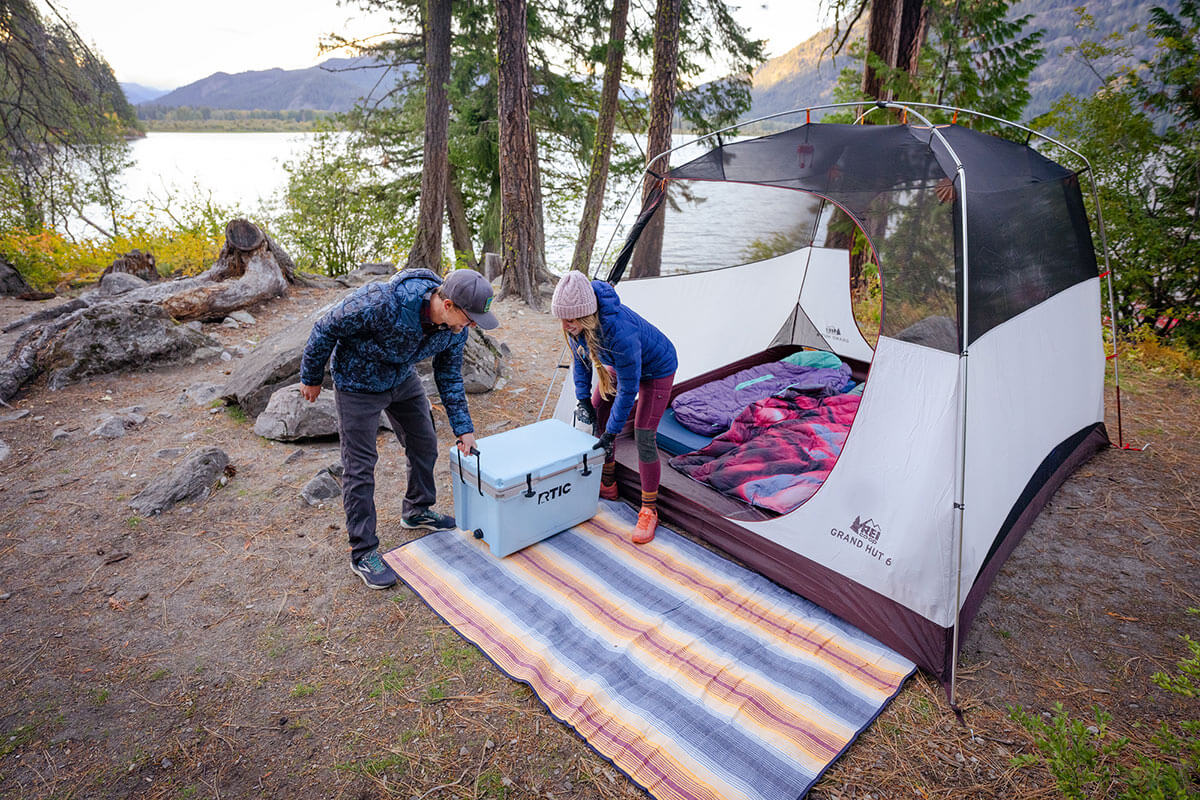Camping is one of the most cherished recreational outdoor activities across the globe. Many outdoor enthusiasts have camped in a tent at least once in their lives. If you have yet to give it a try, I highly suggest that you do. There is nothing quite like sleeping under the stars surrounded by nature. There is something almost primal about tent camping, perhaps connecting us back to our ancestral roots when early humans dwelt in caves.
With the right preparation, tent camping can be one of the best experiences an outdoors person can have. The best way to find that highly sought connection with nature is to first find the best tent for camping and then pack the best tent camping essentials. 
For all of your bushcraft & survival needs visit survivalgear.us
The Best Tents for Camping
Choosing a Camping Tent
Choosing a camping tent can be a huge investment, and an equally big decision. A leaky, poorly designed tent can quickly ruin a camping trip. A good tent, however, will keep you comfy and cozy- forming an ideal shelter while exploring the great outdoors. Tents range greatly in price and quality. Campers can find pop up tents ranging from less than $50 to upwards of thousands of dollars.
There are several factors to consider when choosing a tent, such as:
- Space & Capacity
- Make sure to pick a tent that will be big enough to house the appropriate number of campers it needs to
- Weight & Packed Size
- If you plan on hiking any distance to your campsite, take that into consideration. You won’t want to haul a large, heavy tent for more than a mile.
- Weather Resistance
- This is perhaps the biggest reason to drop more cash when investing in a tent. Most tents can handle some rain and wind, but only the best quality tents can handle snow storms.
- Value
- If you plan on camping often, invest in a tent that is guaranteed to give you the most bang for your buck. You don’t want to buy a $50 tent unless you plan on using it for only one weekend- it may not last longer than that.
Pro Tip: if you have purchased a new tent, practice putting the tent up at least once before your big camping trip. This is a useful step to make sure that you have all of the necessary parts required to put the tent together- there is nothing worse than getting out into a secluded area and finding that you are missing the main pole that holds the tent together. Doing a trial run before the trip also ensures that you know exactly how to put the tent together, which can help make things go more smoothly and quickly once it’s time to set up the tent at your designated campsite.
Tent Camping Essentials
Waterproof Your Shelter With Tarps
Most campers know the importance of bringing along a waterproof tarp to shield your home base from any potential rain. But also it’s important to pack an additional tarp to put under your tent.
I learned this tip the hard way when camping in my tent a few years ago. I had set up camp along the Rifle River in Northern Michigan with some friends to enjoy a weekend of tubing and tenting it. One night, we experienced some unexpected rain. Thanks to the waterproof tarp hanging above my tent, my roof was leak-proof. But, to my dismay, water started pouring in from the bottom of my tent. Thankfully, I was sleeping on a raised hammock bed (which I highly recommend), so the water pooling inside my tent did not leave me soaked. Upon waking the next morning, I discovered that I was the only camper in the group to experience this problem. I had so much water in my home base, I couldn’t believe their tents had stayed so dry. My friends informed me that they had all securely planted a waterproof tarp under their tent for this very reason. Lesson learned.
Emergency and First Aid
Safety is of the utmost importance. Make sure to pack the following essentials:
- First Aid Kit
- An effective first aid kit should be sure to include:
- Adhesive bandages
- Gauze
- Medical adhesive tape
- Finger Splints
- SAM (structural malleable aluminum) splints
- Medication
- Ibuprofen/ pain-relief medication
- Aspirin (primarily to treat a heart attack)
- Prescription medications (such as antibiotics)
- Antihistamines to treat allergic reactions
- Injectable epinephrine (for severe allergic reactions)
- Diarrhea medication
- Antacid tablets
- Antiseptic wipes
- BZK-based wipes preferred; alcohol-based are acceptable
- Topical treatments
- Antibacterial ointment
- Blister treatment
- Insect sting/ anti-itch ointment
- Sunburn relief gel or spray
- Medical tools
- Fine-point tweezers (for removing splinters)
- CAT Tourniquet
- Safety pins
- Blunt-tip scissors
- Safety razor blade
- Cotton swabs
- Medical/ surgical gloves
- (nitrile is recommended, as many people suffer from a latex allergy)
- CPR mask
- Standard oral thermometer
- Small notepad with waterproof pencil or pen
- Medical waste bag
- Emergency heat-reflecting blanket
- First-aid manual or information cards
- Throat lozenges
- Eye drops
- An effective first aid kit should be sure to include:
- Insect Repellent
- Lighter/matches and Fire Starter Kit
- Whistle
Health & Hygiene
“Roughing it” doesn’t mean that you have to neglect your health or hygiene. Drinking clean water and taking care of your body, like keeping yourself clean, are vital when it comes to surviving for any length of time in the outdoors. Make sure you pack these essentials on your tent camping trip:
- Hand Sanitizer
- Biodegradable soap
- Non-toxic Shampoo/ Conditioner
- If there isn’t a nearby body of water to bathe in, bring your own portable camp shower
- Toothpaste
- Toilet paper
- Baby Wipes
- Sunscreen
- SPF-rated Lip Balm
- Water filter
If you found this tent camping guide to be helpful, feel free to let us know and share it with friends.
Happy camping!

